-
The following is a list of resources which can be used to contribute to the quality of your practice and your continuous improvement as a CLD practitioner.
-
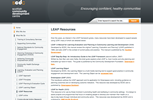 A 5-step framework designed to support a partnership approach to achieving change and improvement in the quality of community life.
A 5-step framework designed to support a partnership approach to achieving change and improvement in the quality of community life. -
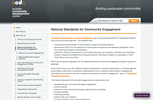 Sets out best practice guidance for engagement between communities and public agencies. Includes guidance on involvement, partnership working, improvement and evaluation. Other support materials can be found on SCDC website
Sets out best practice guidance for engagement between communities and public agencies. Includes guidance on involvement, partnership working, improvement and evaluation. Other support materials can be found on SCDC website -
Second edition of a publication developed by the CLD team at Shetland Islands Council. The Toolkit aims to 'support CLD staff in Shetland to improve the quality of CLD work and increase awareness of the local and national guidance, policy and plans which inform our work'
-
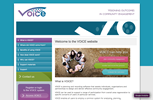 Software that helps to plan and record individuals, organisations and partnerships to engage better with communities. Structured into 4 sections: Analyse, Plan, Do and Review.
Software that helps to plan and record individuals, organisations and partnerships to engage better with communities. Structured into 4 sections: Analyse, Plan, Do and Review. -
An extensive guide going under the name of community engagement but which is aimed at those doing community work more generally. Provides background and guidance for learning and a Curriculum Development Framework for community engagement. Prepared by the SCDC for Learning Connections, Communities Scotland (2007).
-
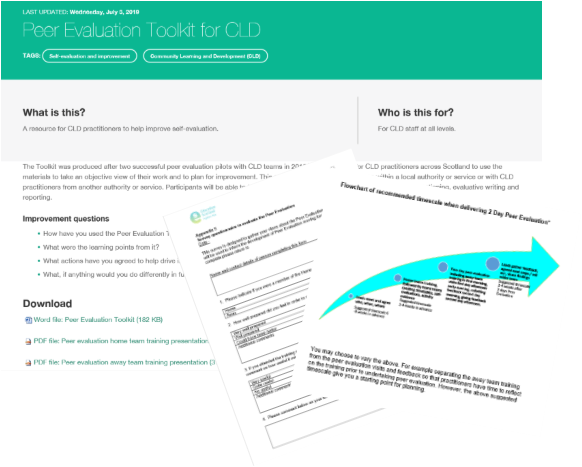 The Toolkit provides CLD practitioners with materials to use to take an objective view of their work and to plan for improvement. This can either be done across teams within a local authority or service or with CLD practitioners from another authority or service. Participants will be able to test out their skills in terms of reviewing CLD practice, questioning, evaluative writing and reporting.
The Toolkit provides CLD practitioners with materials to use to take an objective view of their work and to plan for improvement. This can either be done across teams within a local authority or service or with CLD practitioners from another authority or service. Participants will be able to test out their skills in terms of reviewing CLD practice, questioning, evaluative writing and reporting. -
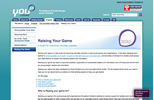 A 3-stage learning process for volunteers and staff in organisations working with young people involving identifying starting point, planning action tasks and reflecting on and evaluating experience.
A 3-stage learning process for volunteers and staff in organisations working with young people involving identifying starting point, planning action tasks and reflecting on and evaluating experience. -
Case Studies in community learning & development: a tool for anyone involved in CLD providing 10 case studies which should assist self reflection with regard to one’s own practice.
-
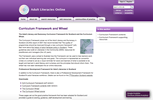 A resource for adult learning using a specially designed wheel as a framework to guide tutors and learners though learning.
A resource for adult learning using a specially designed wheel as a framework to guide tutors and learners though learning. -
A framework for good practice in delivering adult learning (literacy and numeracy) in communities. Contains 7 guiding principles, good practice guidelines and covers 4 different ‘levels’ of practice – from practice at an early stage of development to ‘best practice’ (defined as specialist staff) giving high priority to community literacy and numeracy work, with significant inter-agency working.
-
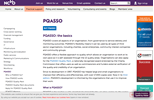 A self-assessment tool which takes voluntary and community organisations through a step by step process of quality improvement at a pace suitable to the organisations themselves. Covers planning, governance, participative working, finances, partnership working and evaluation.
A self-assessment tool which takes voluntary and community organisations through a step by step process of quality improvement at a pace suitable to the organisations themselves. Covers planning, governance, participative working, finances, partnership working and evaluation. -
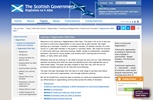 Aimed at anyone working in regeneration, this pack has material on working effectively, assessing our skills and how to upskill. Well structured with reflective questions in the form of action points, case studies and sources of further help. Of direct relevance to CLD quality and continual improvement.
Aimed at anyone working in regeneration, this pack has material on working effectively, assessing our skills and how to upskill. Well structured with reflective questions in the form of action points, case studies and sources of further help. Of direct relevance to CLD quality and continual improvement. -
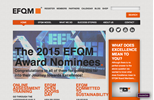 EFQM is a global non-for-profit membership foundation, based in Brussels, Belgium. Resources are available on all aspects of improving organisational performance from 8-step self-assessment toolkits to frameworks for risk management. Aimed at organisations in a wide range of sectors, this is not as relevant as many more CLD specific resources will be, though still could be of interest to those working in CLD.
EFQM is a global non-for-profit membership foundation, based in Brussels, Belgium. Resources are available on all aspects of improving organisational performance from 8-step self-assessment toolkits to frameworks for risk management. Aimed at organisations in a wide range of sectors, this is not as relevant as many more CLD specific resources will be, though still could be of interest to those working in CLD. -
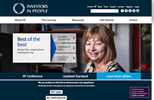 A business improvement framework for organisations which focuses on ‘improving through people’. Lays claim to be flexible, easy to use, outcome focused and not prescriptive. Aimed at organisations in a wide range of sectors, this is not as relevant as many more CLD specific resources will be, though still could be of interest to those working in CLD.
A business improvement framework for organisations which focuses on ‘improving through people’. Lays claim to be flexible, easy to use, outcome focused and not prescriptive. Aimed at organisations in a wide range of sectors, this is not as relevant as many more CLD specific resources will be, though still could be of interest to those working in CLD. -
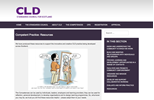 Contains 7 separate booklets all based on the CLD Competences as developed by the Standards Council. 5 share the title Using the Framework and take the form of self-completion exercises for Practitioners, Leaders, Employers, Learning Providers and working In Partnership. The other 2 booklets give more detail on Competent Practice and Challenging Practice.
Contains 7 separate booklets all based on the CLD Competences as developed by the Standards Council. 5 share the title Using the Framework and take the form of self-completion exercises for Practitioners, Leaders, Employers, Learning Providers and working In Partnership. The other 2 booklets give more detail on Competent Practice and Challenging Practice.
-
